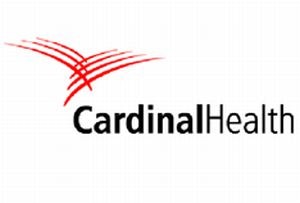Over the past year, I (along with many other investors) have recognized the awesome beauty of dividend stocks. Once considered the stodgy old men of the investing world, dividend-paying companies have become young and hip, and very, very attractive.
One of the most famous lists of high-quality dividend-paying companies is the S&P 500 list of Dividend Aristocrats, defined as large-cap, blue chip companies within the S&P 500 that have followed a policy of increasing dividends every year for the past 25 years.

In the past few months, while I have been building my own Dividend Portfolio, I have reviewed dozens of companies, a number of which are included in the Dividend Aristocrat list. In this article, I will examine five that I have not previously analyzed.
I review the companies on seven different criteria: yield, number of years paying and raising dividends, 5-year Dividend Growth Rate (DGR), 5-year projected Earnings Growth Rate (EGR), total return for the past twelve months, PE and payout ratio. I feel that this selection covers the past dividend-paying history, the potential future earnings growth, and the valuation of the company.
I constructed a rating system that awards points for each of the previous named criteria. A “perfect” score would be 28 points, with 4 points awarded in all seven categories. The hard thresholds that I utilize are a 10-year dividend paying history, and a 3% minimum yield. A company which obtains an 18-20 point rating generally is an automatic choice for the portfolio. One scoring 15-17 merits further consideration and watching for a change in dividend metrics, and anything scoring a 14 or below is rejected.
The top companies of the Dividend Aristocrats, in terms of market cap, are Abbvie (which is already included in my Dividend Portfolio), Lowe’s Companies (which I recently reviewed and rejected), McGraw-Hill (recently reviewed and rejected), Medtronic (recently reviewed and rejected), Nucor Corporation (NYSE:NUE), Leggett & Platt, Inc. (NYSE:LEG), Pentair (rejected for a low dividend yield of 1.7%), W.W. Grainger (recently reviewed and rejected), Family Dollar Stores (rejected for low yield of 1.4%), Emerson Electric Co. (NYSE:EMR), Cardinal Health, Inc. (NYSE:CAH) and Stanley Black & Decker, Inc. (NYSE:SWK).
The first company is Nucor Corporation (NYSE:NUE), a steel company. It is currently trading at $47 per share and yields 3.1%. The company has been paying and raising dividends consistently for 40 years, and its 5-year Dividend Growth Rate (DGR) is 18.3%. Its PE is a high 29.9, and its twelve-month total return is 14.4%. The payout ratio is 92%. The company is currently trading at its 52-week high, and is up 7% from last year.
The 21 analysts who cover the company rate the stock a 2.2 (1.0 = Strong Buy, 5.0 = Sell). It has 5 Strong Buys, 8 Buys, 7 Holds, and 1 Underperform. They have set a one-year target price on the company of $47.46. Within the Motley Fool community, NUE is a four-star CAPS pick, with 2,115 Bulls and 87 Bears (95% positive sentiment).
Nucor scores a 13 on my ratings system; I reject the company based on its high payout ratio, high PE, and mediocre recent and future growth metrics.
Next is Leggett & Platt, Inc. (NYSE:LEG), a steel company. It is currently trading at $29 per share and yields 3.9%. The company has been paying and raising dividends consistently for 41 years, and its 5-year DGR is 8.3%. Its PE is a high 23.6, and its twelve-month total return is 31.6%. The payout ratio is high at 90%. The company is currently trading at its 52-week high, and is up 34% from last year.





